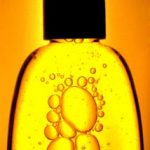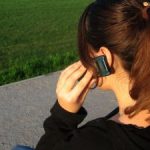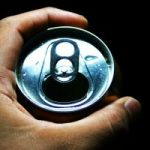Throughout the years there have been many cancer myths floating around. The question is: Is there any truth to these cancer myths?
In this two part special we probe the most well known cancer myths and stamp out the fact from the fiction.
Cancer myth:
1) A shampoo additive called sodium lauryl sulfate (SLS) causes cancer.
Fiction.
These chemicals are simply detergents and not carcinogens, and they have never been linked to cancer. Because SLS and SLES are so good at cleaning oil and dirt, they are indeed used industrially. But the assertion that they cause cancer is untrue.
2) Wearing a bra causes breast cancer.
Fiction.
This rumour is based on the mistaken idea that wearing a bra compresses the lymph nodes and leads to breast cancer. However findings indicate good support doesn’t lead to bad health.
There is no scientific research that proves any bra or compression causes breast cancer.
3) Deodorants and anti-perspirants cause breast cancer.
Fiction.
Smell fresh without fear. These concerns were started by an email hoax and currently there is no convincing evidence to say that antiperspirants or deodorants cause breast cancer.
Although it’s true that about half of all breast cancers occur in the upper outer quadrant of the breast, it’s because most of the breast tissue is located there — not because it’s adjacent to the armpit.
4) Microwaving food in plastic containers / cling film causes cancer
Fiction.
There is no scientific evidence that microwaving food in plastic containers or wrapped in cling film can affect the risk of cancer.
According to the Food Standards Agency you can use cling film in the microwave, but make sure the cling film doesn’t touch the food.
Whenever you heat something, including plastics, you increase the likelihood of pulling chemicals out but there is no evidence that this process could affect the risk of cancer.
Even so, it is a good idea to minimise any potential risks by using plastics and cling film correctly.
5) Mobile phones cause brain tumours
Fiction.
So far there is no good scientific evidence that using mobile phones can cause any type of cancer. While it is unlikely that these phones could increase the risk of cancer, we do not know enough to completely rule out a risk.
The largest study so far on mobile phones and cancer is a Danish study, which looked at over 420,000 people. It found no link between mobile phones and any type of cancer including brain cancers and leukaemia. Reports from the Interphone study, which included over 6,000 people with brain cancer from 13 countries, have also found that brain cancer is not more common among mobile phone users.
6) Fizzy drinks cause cancer.
Fiction.
A group of scientists in 1981 raised fears over the safety of saccharin – sweeteners which can be up to 200 times sweeter than natural sugars. Tests showed saccharin – which was considered to be carcinogenic or cancer causing – caused bladder tumours in rats.
However, more recent studies now indicate that the results of the experiments with rats are not relevant to human beings.
Scientists from America’s National Institute for Environmental Health Sciences now confirm that saccharin does not pose a health risk.
PLEASE NOTE:
All information provided has been sourced from outside of Impact Young Heroes therefore the author or Young Heroes assumes no responsibility as a result of this article.
References:
www.dailymail.co.uk/health/arcticles





